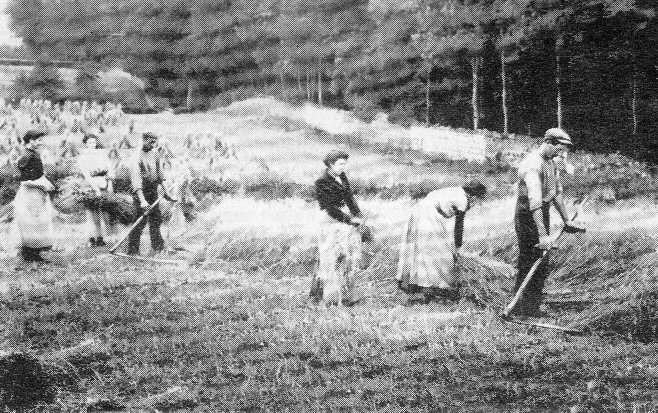Frequent food parcels from American relations during World War II provided relief from the drudgery and shortages. I well remember the excitement of their arrival and the ritual of opening them. For me, apart from the food – spam, dried eggs, candy and chocolate, canned fruit etc, the most exciting part of the whole process was the comics.
As well as regular editions of war comics and Superman, the main part of the packing of the goodies was made up of the “funnies” sections of the American Sunday papers. These were substantial publications in their own right, some 10 or 15 double broadsheet pages, chock full of exotic characters; Little Orphan Annie, Lil Abner, Henry, Mutt and Jeff. They certainly gave me early reading practice.
Mrs Hearty had “the cure” and was regularly patronised by mother bringing children with childhood ailments. When I developed mumps my mother took me for the cure. Although I was no more than four or five at the time I remember how miserable I felt with my sore throat, high temperature and swollen neck glands. The “cure” consisted of me being paraded three times between the house and the byre, wearing a set of horse winkers, while a decade of the rosary was recited.
Clearly the woman had the cure because I got better.
Mrs Hearty had two sons, Francey and Tom. Tom and I were of an age and were friends. He, and some other boys in the school had a completely shaven head except for a small fringe. Everyone wore short trousers and boots. We played marbles on the road with no fear of traffic since that consisted mainly of bicycles and carts. Given petrol rationing and the general poverty of the area, there were very few cars on the road.
Willis’ Bakery in Newry had a van that came round several days a week. The bread, plain and pan loaves were set out on wide trays that slid out of the back and dropped down for access. The breadman had a long paddle to bring the bread from the back of the tray. Other trays had scones, and buns, and cakes. The plain unsliced loaves were baked in batches that had to be pulled apart. They were still warm from the baking and when we were sent to the top of the lane to buy them we would pull off and eat the flakes of bread as we took them home. Often this ‘mining’ left holes in the loaves before we got there.
… more later …
